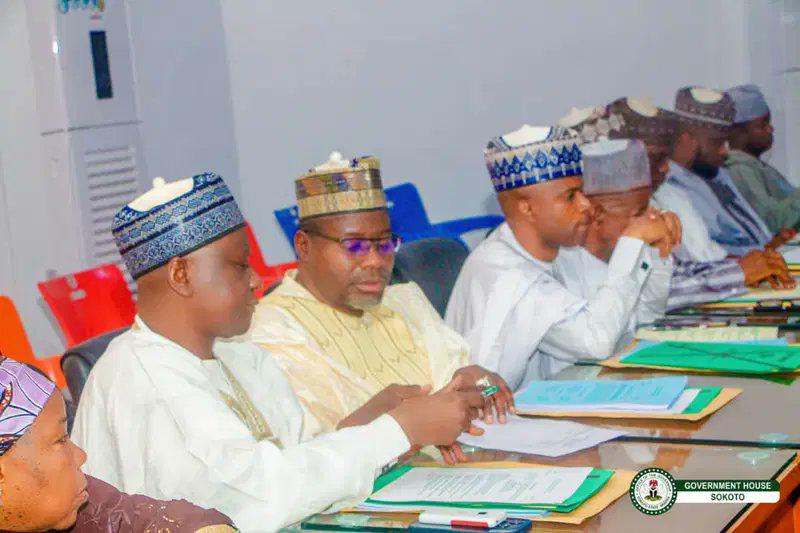In a bold move to reshape the socio-economic landscape of Sokoto State, the state government has approved a monumental ₦69 billion investment for a series of ambitious projects targeting housing, agriculture, and infrastructure development. This landmark decision, announced recently, underscores the administration’s commitment to addressing critical needs, fostering sustainable growth, and improving the quality of life for residents across the state.
A Comprehensive Vision for Development
The ₦69 billion allocation is poised to serve as a catalyst for transformative change in Sokoto, a state known for its rich cultural heritage and agricultural potential but also grappling with challenges such as housing deficits, limited infrastructure, and the need for modernized farming practices. The funding will be channeled into three key sectors—housing, agriculture, and infrastructure—each designed to tackle pressing issues while laying the foundation for long-term prosperity.
Housing: Addressing the Shelter Gap
One of the cornerstones of this initiative is the focus on affordable and sustainable housing. Sokoto, like many Nigerian states, faces a significant housing shortage, particularly in urban centers where rapid population growth has outpaced residential development. The government’s plan includes the construction of modern, affordable housing units to cater to low- and middle-income families, aiming to reduce overcrowding and improve living conditions.
These housing projects are expected to incorporate eco-friendly designs and local materials, ensuring cost-effectiveness while promoting environmental sustainability. By prioritizing accessibility, the state aims to provide dignified living spaces for thousands of residents, particularly in underserved communities. The initiative also includes plans to upgrade existing settlements, ensuring access to basic amenities like clean water, electricity, and sanitation.
This move aligns with the broader vision of creating inclusive urban centers, with potential ripple effects on job creation, as construction projects are likely to employ local labor and stimulate related industries such as cement and steel production.
Agriculture, the backbone of Sokoto’s economy, is set to receive a significant boost through this investment. The state, often referred to as the “food basket” of Nigeria, is known for producing crops like millet, sorghum, rice, and onions, as well as livestock farming. However, challenges such as outdated farming techniques, limited access to modern equipment, and climate variability have hindered productivity.
The ₦69 billion package includes funding for modernizing agricultural practices through the provision of high-yield seeds, fertilizers, and irrigation systems. The government also plans to establish agricultural training centers to equip farmers with the skills needed to adopt advanced techniques, such as precision farming and climate-smart agriculture. These centers will serve as hubs for knowledge transfer, empowering rural farmers to increase yields and improve food security.
Additionally, the initiative will support agro-processing industries to add value to local produce, reducing post-harvest losses and creating new revenue streams. By investing in storage facilities and market access, the state aims to strengthen the agricultural value chain, ensuring that farmers can compete in both local and national markets. This focus on agriculture is expected to create thousands of direct and indirect jobs, particularly for the state’s youth, while addressing food insecurity in the region.
Infrastructure: Building the Foundation for Progress
The third pillar of the ₦69 billion investment is infrastructure development, a critical driver of economic growth. Sokoto’s infrastructure projects will focus on improving road networks, expanding access to electricity, and enhancing public utilities. Key among these is the rehabilitation and construction of roads connecting rural communities to urban markets, which will facilitate the transport of goods and people, reducing travel times and boosting commerce.
The government also plans to invest in renewable energy projects, such as solar-powered systems, to address the state’s energy challenges. Reliable electricity is essential for powering homes, businesses, and industries, and this initiative aims to reduce dependence on inconsistent power supplies. Water infrastructure, including boreholes and dams, will also be prioritized to ensure access to clean water for both domestic and agricultural use.
These infrastructure upgrades are expected to have far-reaching impacts, from improving healthcare delivery by connecting remote clinics to urban centers to fostering industrial growth by creating a more conducive environment for businesses. The projects will also prioritize local contractors, ensuring that the economic benefits remain within the state.
The ₦69 billion investment comes at a pivotal time for Sokoto State, which has been working to align its development goals with Nigeria’s broader economic diversification efforts. The state government, under its current leadership, has consistently emphasized the importance of investing in human capital and infrastructure to drive sustainable growth. This funding package builds on other recent initiatives, such as the 2025 budget’s focus on education, health, and agriculture, signaling a holistic approach to development.
By addressing housing, agriculture, and infrastructure simultaneously, the government is tackling interconnected challenges that have long hindered progress in the state. For instance, improved roads and electricity will support agricultural productivity, while affordable housing will provide stability for families, enabling them to invest in education and entrepreneurship.
The announcement has sparked optimism among Sokoto residents, who see the projects as a step toward addressing long-standing challenges. Local community leaders have praised the government’s focus on rural development, noting that improved infrastructure and agricultural support will uplift marginalized areas. “This is a game-changer for our farmers and youth,” said Alhaji Musa Abdullahi, a community leader in Gwadabawa. “With better roads and training, our people can thrive.”
However, residents are also calling for transparency and accountability in the implementation of these projects. Past experiences with delayed or mismanaged initiatives have made some cautious, and there is a strong expectation that the government will ensure funds are used effectively. The state has promised to establish monitoring mechanisms to track progress and engage local stakeholders in the process.
Sokoto’s ₦69 billion investment could serve as a model for other Nigerian states seeking to address similar challenges. By prioritizing sectors that directly impact livelihoods—housing, agriculture, and infrastructure—the state is laying the groundwork for inclusive growth. The emphasis on sustainability, local empowerment, and job creation aligns with global development goals, positioning Sokoto as a potential leader in regional transformation.
As the projects roll out, their success will depend on effective execution, stakeholder collaboration, and adaptability to local needs. If implemented well, this initiative could not only transform Sokoto but also inspire similar efforts across Nigeria’s northern region.
The Sokoto State Government’s ₦69 billion investment marks a defining moment for the state’s development trajectory. By addressing critical needs in housing, agriculture, and infrastructure, the administration is taking bold steps to improve living standards, boost economic opportunities, and create a more resilient future for its people.
As the projects take shape, residents and observers alike will be watching closely to see how this ambitious vision translates into tangible results. For now, the promise of a transformed Sokoto shines brightly, offering hope for a state ready to embrace its potential as a hub of progress and prosperity.
Join our Whatsapp channel to stay updated always!


